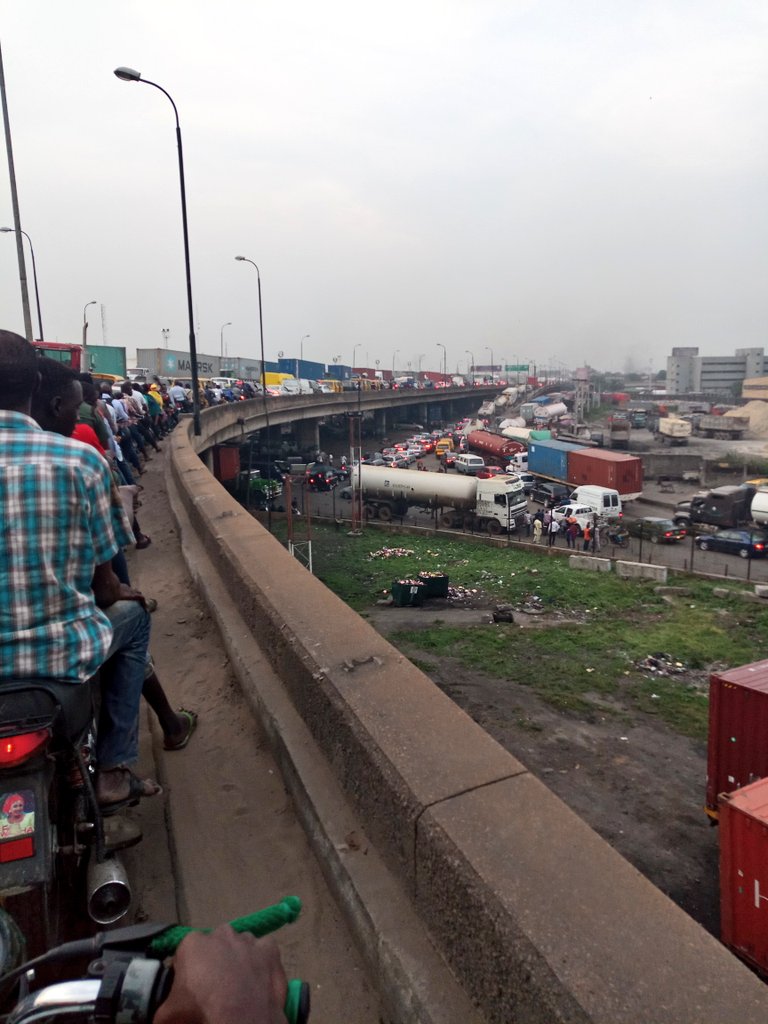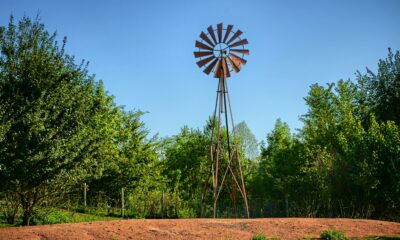Features
What to Do About the Gridlock in Apapa & Environs
The yuletide is fast approaching, and for Lagosians, this means, among many other things, traffic. Just that this year’s edition will be worse, if something is not done, fast.
Trailers have taken over virtually all the roads leading to the only functional seaport in Nigeria (Apapa), a country of about 200 million people with massive import profile, a country that prides itself as the giant of Africa.
Vice President Yemi Osinbajo has visited a couple of times, flying in a chopper, and had even ordered the trailers to evacuate the bridges. That order was obeyed… The trailers were back on the bridges one week later.
The road from Apapa to Mile 2, down to Isolo toward Oshodi, has been taken over by trailers, posing a risk to motorists and also making navigation really difficult.
The other route to the port (Ijora) has also been taken over by trailers, stretching toward Costain and up to Eko Bridge, toward Lagos Island, and it doesn’t look like it’s stopping soon.
Even Carter Bridge toward Ijora has also been overtaken by trailers.
Road users and residents have been complaining, but maybe because it’s election season, it seems no one is listening.
It is actually unfair and risky to allow these heavy duty trucks to pack on two lanes on Eko Bridge. This has caused serious hardship on motorists. I call on all relevant authorities to please come to our aid @followlastma @Gidi_Traffic @TrafficChiefNG @followlasg @tolulopeab pic.twitter.com/xDVcXswmLs
— Suleiman Yahaya (@esyahaya) November 19, 2018
Madness! pic.twitter.com/vyuURrlOSd
— Cybzz. (@mayor_cyber) November 19, 2018
Motorists now use only one part of the Apapa-Oshodi expressway (from Berger to around 2nd Rainbow bus-stop) as trailers have taken over the other part. Meaning, virtually all vehicles from 2nd Rainbow toward Apapa use one-way.
People living in residential areas around or toward the port – Ijora-Badia, Awodiora, Ajegunle – are suffering as trailers now move within their streets trying to make it to the port.
Thing is, apart from the health, environmental, and physical risk this poses, people are also suffering financially.
When there are no roads, individuals who have to get to and from work on time have to make use of the alternative, more expensive and riskier means of transportation – the commercial motorcycle. People do this every day, and sadly, their salaries are not increasing.
Individuals and families who are making a living selling items in their houses can no longer do so. Trailers have occupied the spaces through which their potential customers will access or even spot them.
Then let’s talk about how this is fuelling corruption or vice versa. The price of transporting a fully loaded container has gone up by 300%, and in some cases, almost 500%.
No, it’s not because the trailer drivers want more money for the stress, it’s because they have to pay security agents and road officials (the police, Army, sometimes, Navy and Customs, FRSC, LASTMA) and agberos to fast-track their movement. This is well known to commuters familiar with these routes.
Also, think of any powerful Nigerian whose business is linked to the ports. Done? When any of these people’s trailers are parked or need to make way to the port, they are given priority access, sometimes with special security agents behind and before them.
According to TheCable, the Federal Road Safety Corps (FRSC) sector commander in Lagos, Hyginus Omeje, said trucks and tankers parked on Apapa road are linked to powerful Nigerians.
Omeje said most of the trucks and tankers are owned by some powerful Nigerians who often used security operatives to escort the vehicles to loading points through a one-way traffic.
“My officers often try to enforce arrest and subsequent prosecution, but the culprits mostly go free after one influential person calls from Abuja, demanding for the release of the impounded vehicles.
This is a daily occurrence that has been impeding the operations of the FRSC in tackling the wharf access road crisis.
How do you expect the gridlock to disappear when one cannot enforce traffic regulations and some people who feel that their vehicles cannot be on the queue transgress the law with impunity,” Omeje was quoted as saying.
This is likely to go on until at least sometime in 2020 if something else is not done. Why 2020? Because the federal government just flagged off the reconstruction of the Apapa-Oworonshoki-Ojota Expressway last weekend.
The ₦72bn project will be bankrolled by Dangote Group and the contract has been awarded to AG Dangote.
“The President of Dangote Group, Aliko Dangote, has committed that the contractor, AG Dangote, will deliver the 2-year project ahead of schedule.
Aliko Dangote said his company would bankroll & reconstruct the 72 billion Naira road and recoup their money after three years by deducting the sum from the tax they are supposed to pay. He added that in 2017 alone, Dangote Group paid over N96 billion as tax to the Fed. Govt.
When completed in 2020, this road would hopefully bring a lasting solution to the gridlock in Apapa,” The Nigerian Ports Authority (NPA) said on Twitter following the flag-off ceremony.
Apapa-Wharf road scheduled for completion by June 2018 has been completed. That project was also sponsored by Dangote Group, together with NPA and Flour Mills of Nigeria.
But should we wait until 2020 for people to be safe? The federal and state governments need to do something, and fast, about this. We are sitting on a time bomb and we know it, but we are just “managing”.
Dear Federal Government, what to do about the recent Apapa gridlock that has gone on for about 2 years?























